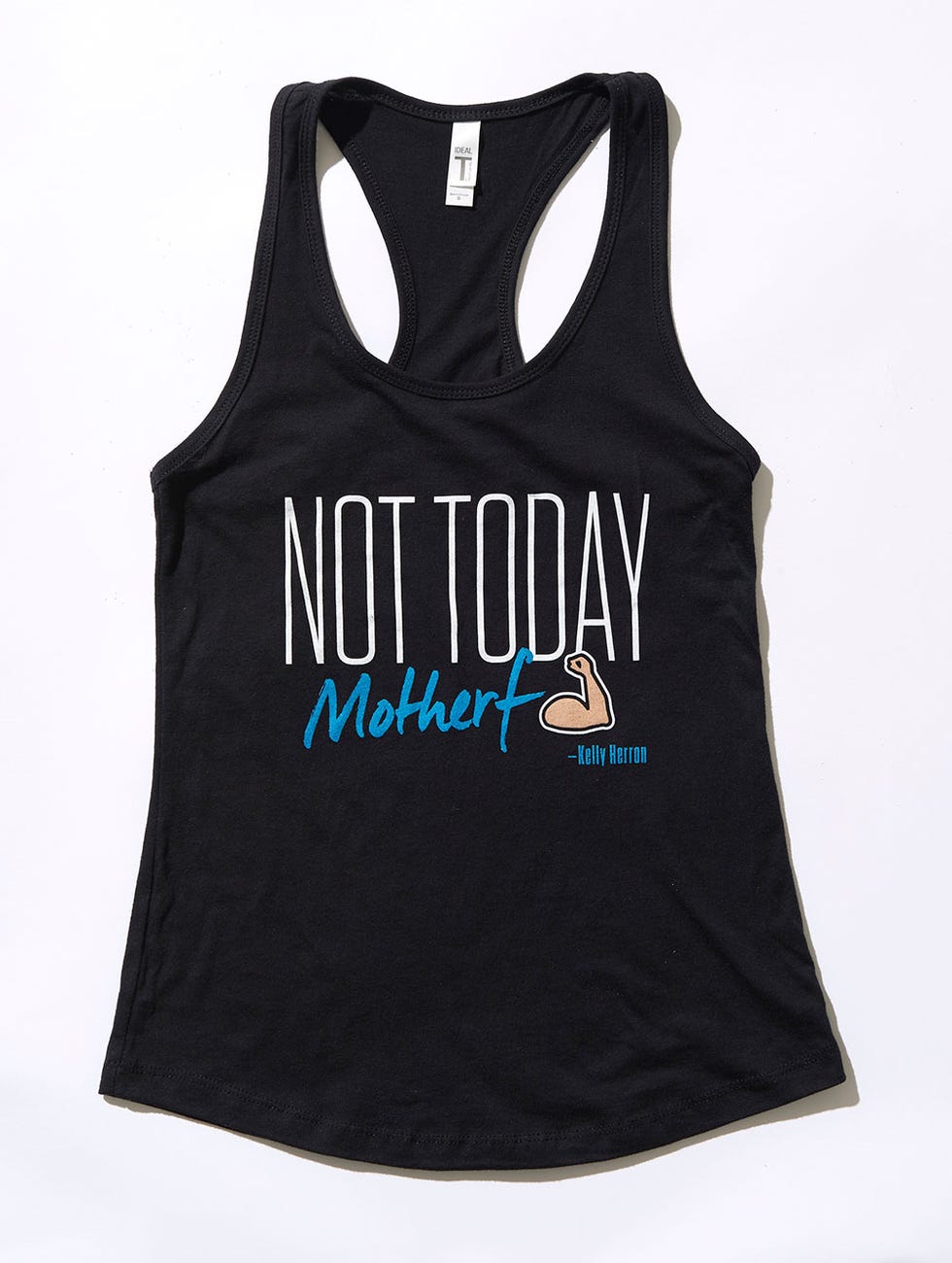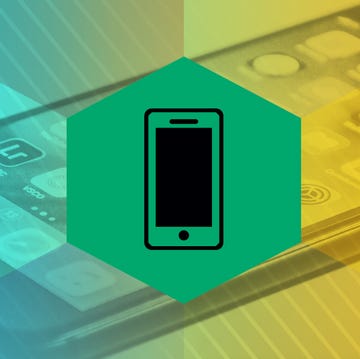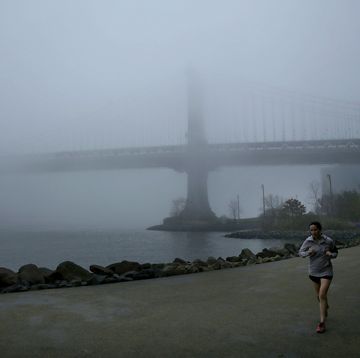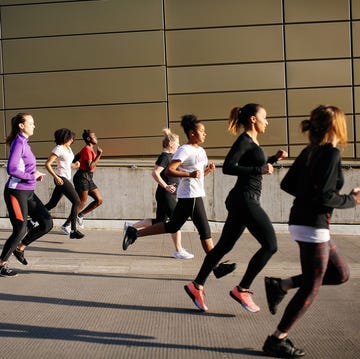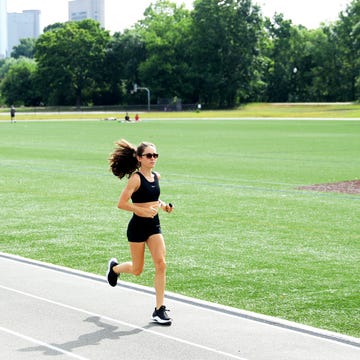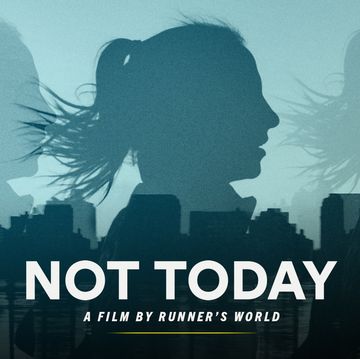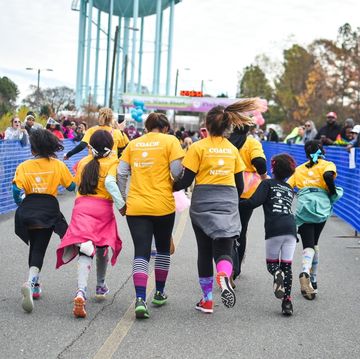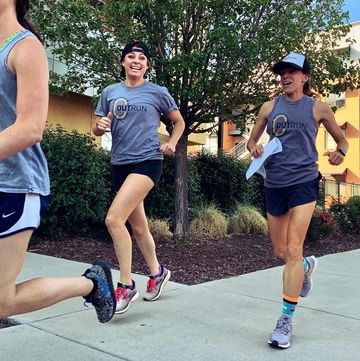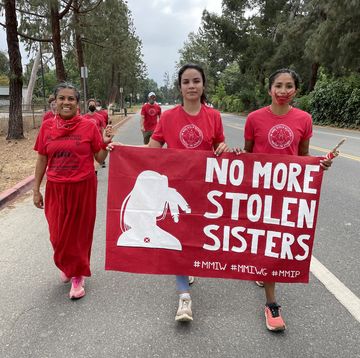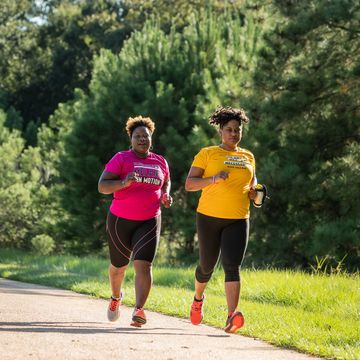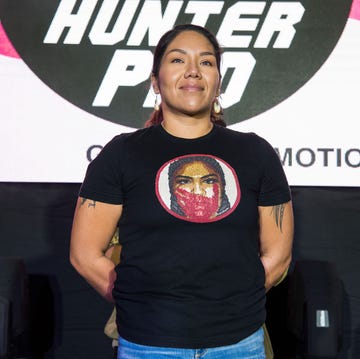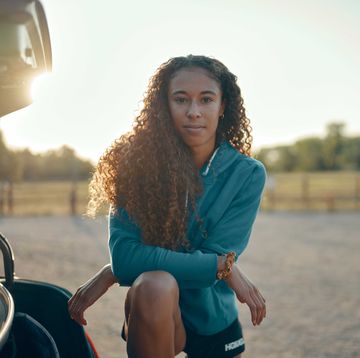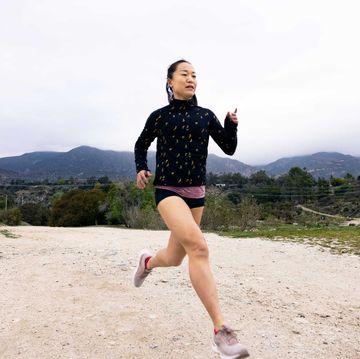It was a typical Sunday morning in February in Golden Gardens Park on Puget Sound in Seattle. Kelly Herron, 36, was four miles into her 10-mile long run in preparation for a June marathon.
She stopped to use the public bathroom. She dried her hands and turned to leave. And then she saw him: a grisly looking man who had been hiding in the stalls. He lunged forward and took Herron down to the floor.
Runner’s World covered this story immediately following the attack, after Herron posted an account of her fight on Instagram. Her picture showed the wounds she sustained and the jagged movement lines captured by her GPS device. She fought the predator who’d tried to assault her, using methods she learned at a self-defense course her employer had provided just three weeks prior. She clawed, hit, and crawled her way away from the registered sex offender, all the while shouting, “Not today motherf***er!”
Another person in the park heard her cries and helped lock her attacker in the bathroom until the police came.
In the moments immediately following, Herron thought, But wait. I still have six miles to go.
“I think I was in shock,” Herron said, recalling the aftermath three months later. That dedication to her training schedule continued as Herron soldiered through media interviews and resumed her usual day-to-day responsibilities. And despite pain, she pushed through.
“I’d suffered a lumbar spine injury in the attack,” Herron said. “And I had mental trauma. But the support I’d received was so overwhelming and generous that I kept thinking that I had to show all the women in the world that nothing could stop me from running the marathon.”
RELATED: The Problem Is Not Women Running Alone
In days, Herron gained nearly 12K Instagram followers. She received dozens of interview requests and hundreds of letters of support.
“I thought people needed to see me succeed despite my setbacks,” Herron said. “I was putting so much pressure on myself. Running was no longer fun.”
About a month into her whirlwind of press attention and training, Herron thought to herself: Who am I running for?
“It wasn’t for me anymore,” she said. “I knew then that I needed to take a break.”
At the end of March, Herron stopped doing interviews and made the decision to delay her first full marathon. She sought help to heal both her physical and mental injuries. “Sometimes the best way to move forward is to take a step back,” she said.
RELATED: Staying Safe as a Runner
When she felt ready, she went for a run. She continued to run alone because she uses that time and space to meditate and work through the problems in her life. When it felt truly enjoyable again, Herron registered for the Chicago Marathon, a course special to Herron’s heart, near her childhood home. She will run with her mother. Both will be running for Girls on the Run.
Taking time for herself has only strengthened Herron’s will to spread the word about empowerment, safety, and survival. When Runner’s World posted the news of her fight to Facebook, a commenter was taken with the battle cry.
Herron agreed and partnered with Runner’s World to make the shirt a reality. Net proceeds will go to RAINN (Rape, Abuse, and Incest National Network), the largest anti-sexual violence organization in the country. RAINN works in communities to prevent attacks on women and help victims of abuse, and is the creator and operator of the National Sexual Assault Hotline.
Herron hopes that her message will help anyone who’s faced an attack.
“I got some pushback from people who thought I was forgetting about the women who were not able to fight back,” Herron said. “But there are three types of survival: fight, flight, or freeze. They all work. If you couldn’t fight, and you’re still here, you did the right thing. You survived. If you’ve found a way to move through your life with happiness, you’ve won the fight."
“Assault can be very isolating and lonely,” Herron continued. “Especially if you need medical, emotional, or financial assistance. That’s why RAINN is important. I want people to know that healing is a process and that it is never too late to seek support. It can be lonely to keep something to yourself. You don’t have to.”


